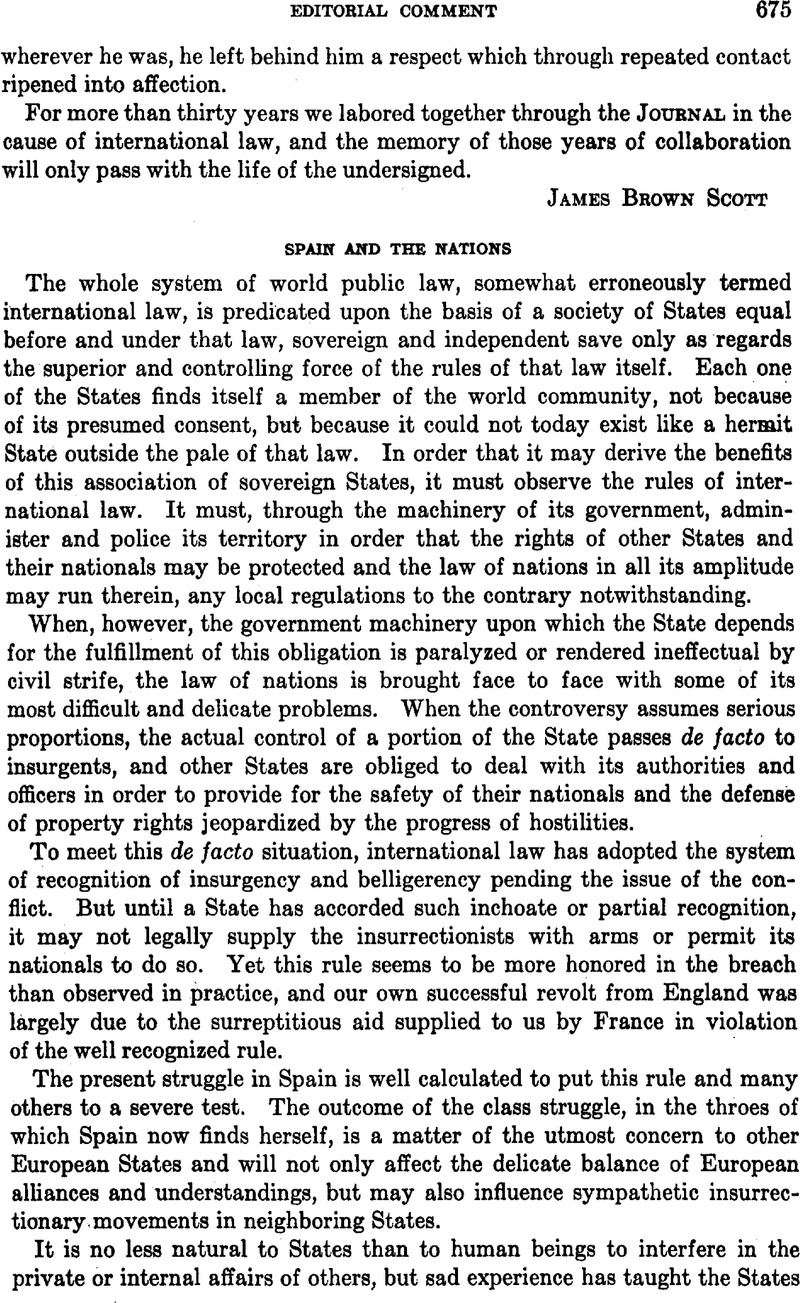No CrossRef data available.
Published online by Cambridge University Press: 12 April 2017

1 New York Times, Sept. 1, 3, 5, 6, 9
2 Letter of William Phillips (Acting Secretary of State) to an American manufacturer, concerning the exportation of arms and ammunition to Spain. State Dept. press release Aug 22, 1936. See also August and September tables of exports in the State Dept. news releases of Aug. 18 and Sept. 4
3 Ibid. Also see Neutrality Hearings and Report of the Committee on Foreign Relations, U.S. Senate, 1936.
4 This was one of the principal grounds justifying our intervention to free Cuba from theseverities of Spanish domination. Cf. Theo., S. Woolsey, American Foreign Policy, pp 75–76Google Scholar; also Hall, International Law, 4th ed., p. 303. In 1835 Palmerston threatened the Carlists with intervention if they should carry out their intended violation of the rules of British State Papers, Vol. 24, pp. 396–417
5 New York Times, Aug. 18, 20. See also letter of Uruguayan Minister (Richling) to U. S. Secretary of State (Hull), State Dept. press release, Aug. 21.
6 New York Times, Aug. 30, Sept. 3, 6.
7 Nicolay and Hay, Works of Abraham Lincoln, Vol. VI, p. 361.
8 New York Times, Sept. 1, 2, 9. Also State Dept. press release, Aug. 30, 31
9 New York Times, Sept. 1, 3.
10 New York Times, Sept. 3,1936.
11 Copyrighted article in Chicago Tribune, Aug. 30, 1936. See also Washington Post, Sept. 4.
12 New York Times, Sept. 11.
13 Sir Frederick St. John, Reminiscences of a Retired Diplomat, pp. 194–198.
14 Secretary Knox to American Minister at Guayaquil, Jan. 30, 1912: “You are correct in assuming that what is technically known as ’the right of asylum’ in a strict sense is not claimed by this government. However, there is an evident distinction between this case and that where temporary refuge is given within the residence of a consular or diplomatic representative in order to preserve innocent human life.” Foreign Relations, 1912, p.399.Google Scholar